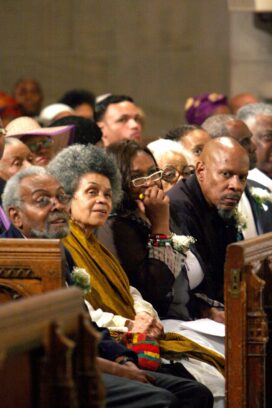Facts about Amiri Baraka
Amiri Baraka Biography
Amiri Baraka, born Everett LeRoi Jones, was an Black American writer known especially for his politically-charged poems, essays and plays from the 1960s and ’70s.
Raised in New Jersey, Jones graduated from Howard University (1954), spent three years in the U.S. Air Force (1954-57), then moved to New York’s Greenwich Village, where he studied at Columbia University and associated with jazz musicians and writers of the Beat era (Jack Kerouac, Allen Ginsberg and others).
His early work, written as LeRoi Jones, secured his literary reputation: Preface to a Twenty-Volume Suicide Note (poems, 1961), Blues People: Negro Music in White America (criticism, 1963) and the one-act Dutchman (Obie-winning play, 1964).
During the 1960s he was active in the Black Nationalist movement, converted to Islam, changed his name to Imamu Amiri Baraka (“Blessed Prince”), and in the ’70s he became an adherent of Marxist–Leninist politics.
A gifted and prolific writer, he railed against The Man his entire career, in university classrooms and in essays, poems and plays.
An influential figure in 20th century African-American literature, Baraka was both literary doyen and anti-establishment hero — he was made New Jersey’s poet laureate in 2002, only to have his post eliminated after he suggested the government of Israel had prior knowledge of the 11 September 2001 attacks on the United States (in a reading of his poem “Somebody Blew Up America”).
His other works include the plays The Death of Malcolm X (1969) and What Was the Relationship of the Lone Ranger to the Means of Production? (1979), the poetry collections Black Magic (1969) and Funk Lore: New Poems 1984-1995 (1996), and the non-fiction books Trippin’: A Need for Change (1969) and The Music: Reflections on Jazz and Blues (1987).
Extra credit
A university lecturer throughout his career, Baraka spent many years (1979-2000) at the State University of New York in Stony Brook.

